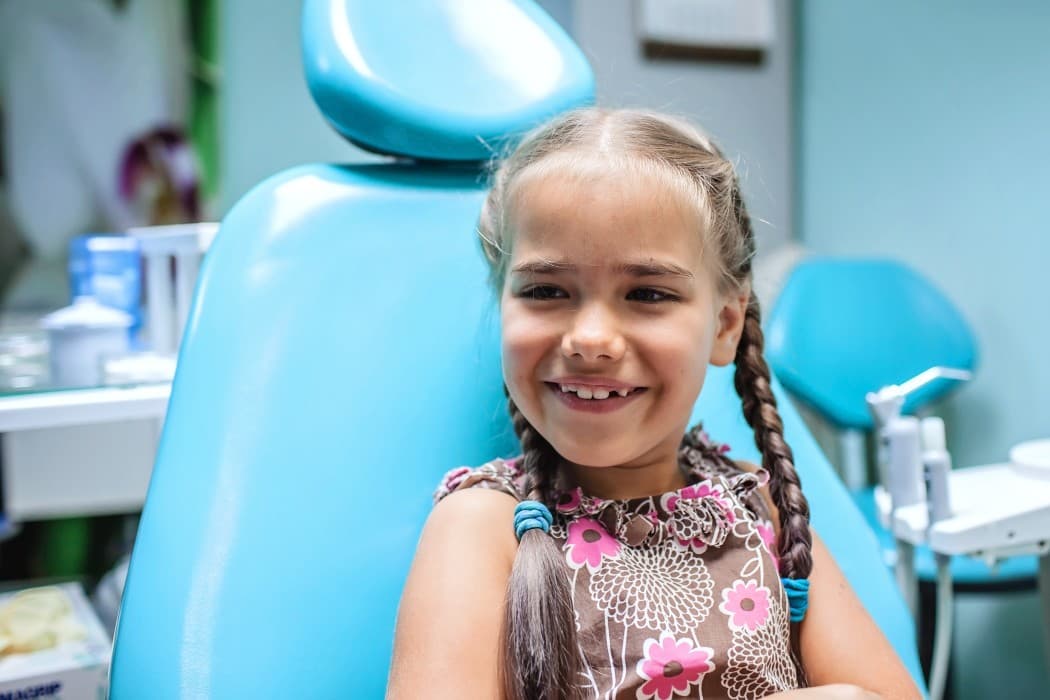
How To Keep Your Child’s Mouth Healthy
Oral health for children is a necessary component for total health and wellness.
Your children must be taught the skills needs to take care of their teeth and gums in order to become proficient in caring for their oral health and it’s important for you as a parent to be a good example to them.
Unfortunately, many people (parents included) often neglect their oral health.
It’s estimated that 75% of people have some sort of anxiety about visiting the dentist, and this can cause us to neglect our own oral health care habits until something more serious happens to us.
Setting a good example for your children with respect to oral health begins with the habits that you create for yourself. Your children will look at these habits in order to form their own.
Habit hypocrisy will quickly catch up with you as your children begin to question your actions as they get older and examine what you’re telling them versus what you’re actually doing yourself.
You can begin to set your children up for success by starting early, staying consistent, and modeling good behaviors that all of you can practice together at home.
Follow these simple care steps to keep your children’s oral health pristine all the way through their teens:
Baby Dentist Tips
From the day you bring your newborn home from the hospital, you can regularly perform inspections of soft tissues in the mouth.
This will be especially important as your child gets closer to teething; you will be able to look for signs and symptoms that conditions in the mouth are ripe for erupting teeth.
After your child eats, inspect their mouth and gums to make sure everything is clean and free from debris, sores, and other abrasions that could lead to infection.
Regular parent check-ups of your infant’s mouth will help set the stage for more successful dental check-ups later on.
Get Regular Check-ups
It is never too early to get your child used to visiting the office of their dentist.
Schedule checkups for yourself, and bring your children with you, if possible.
Immersing them in this environment will help to reduce any anxiety that they may feel at the thought of getting their first checkup.
Remain positive and upbeat while you are there; this communicates the message that this necessary step of care can be enjoyable and fun.
In general, a child’s first dental visit to the dentist office should occur at or just before the eruption of the first tooth. Before this time, it is assumed that you are doing what you can to keep your child’s mouth clean and free from debris in between feedings.
Gum stimulation is a good practice to begin when children show signs of teething, as this can help to stimulate eruption of the teeth and aid in promoting healthy circulation through the soft tissues of the mouth and gums.
There are several pediatric dentists approved devices that are soft enough for baby to use that aid in the stimulation of gums and the cutting of teeth. Next time you’re in the office ask us about which ones we recommend.
Set up good oral care habits at home
From the time your child gets that first tooth, it is essential that you set up good oral health care habits that can be taken on gradually as they get older.
Showing children how to properly brush, floss, and inspect their own mouths will help them to become aware of what their baseline is for a healthy mouth, and to realize when problems have developed.
From the time your child has their first tooth erupt, gentle cleaning and massaging of both teeth and soft tissues in the mouth are recommended for healthy development.
Adhering to these dental care activities at least twice daily will help your child establish healthy habits that they can carry with them as they get older.
Brushing teeth with child-safe toothpaste containing fluoride can begin as soon as your child’s first tooth erupts.
- For children younger than 2, use an amount no larger than a grain of rice on a soft-bristled brush.
- Children ages 2-5 can use an amount no larger than the size of a pea for brushing teeth.
Encourage your child to spit and rinse their mouth out thoroughly in order to avoid swallowing large amounts of toothpaste.
Follow up with flossing sticks or regular floss and guide it gently in between teeth, massaging along the gumline and back out, moving through the mouth as needed.
As a general rule of thumb, it is advised to continue assisting your child with the brushing and flossing process until he/she is coordinated enough to tie their own shoes.
This is usually around the age of 6.

How to avoid baby bottle tooth decay
For some parents, putting a child down for the night or for a nap with a bottle of juice, formula, or milk is a customary activity.
Unfortunately, this habit can lead to early tooth decay and degeneration of teeth and gums. Sugary residue from these liquids can cling to teeth and take up residence when your child is sleeping, causing deficiencies in tooth enamel that lead to decay.
Avoid this early baby bottle and sippy cup decay by establishing better habits, such as offering water before nap time, or avoiding liquids altogether before sleeping.
Cut back on the sugar!
CUT BACK ON THE JUICE
Many parents think that juice is an acceptable day-long drink for kids and toddlers, but in actuality, it can promote tooth decay.
Switch to water and offer sugary drinks like this occasionally as a treat.
WATCH OUT FOR THOSE SWEET MEDICINES
Man, those sweet medicines may taste good, but they are not necessarily good for teeth. If these sticky, sugary substances are allowed to remain on teeth for too long, they will promote tooth decay.
If your child must take medicines, look for formulas that do not contain added sugar.
Training your child to favor food, drink, and medicine that is not overly sweet will help them to develop healthier preferences for food that they can use to their advantage in the future.
Wean your child from the use of a pacifier
While there are a time and a place for pacifier use, letting a child continue to use one while teeth are in their formative stages is detrimental to their mouth; pacifier use can not only change the shape of the mouth, it can dramatically change the way that teeth come in.
This altered structure can cause complications later on and require that children receive orthodontic treatment to realign teeth.
Do what you can to ditch the pacifier and promote healthier habits of eating, drinking, and self-soothing.
You can do it!
Parents, you are your child’s best defense against tooth decay and a major contributor to the development of their healthy habits; now is the time to step up and share in this exciting skill building process with your children.
Do what you can to model good behavior, make good choices, get excited about sharing in this process of education with your child. You are creating healthy habits and excellent oral health for children that will last a lifetime!
